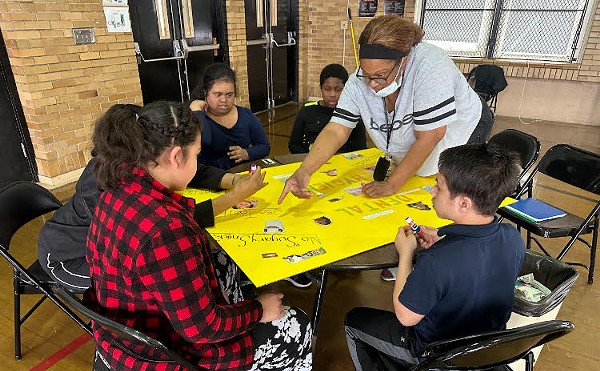Becoming Jane 2 stars
Starring Anne Hathaway, Julie Walters, James McAvoy, Maggie Smith and Jessica Ashworth. Directed by Julian Jarrold. Released by Miramax Films. Rated PG; 1:52.
It would be grossly misleading to claim extensive knowledge of the work of Jane Austen. At least until now. The much beloved English novelist has had her books adapted for film a number of times, though, with results both good (“Pride and Prejudice,” “Sense and Sensibility”) and not so good (“Mansfield Park”). What has not been previously attempted is a film biography of the author herself.
Julian Jarrold’s “Becoming Jane” attempts in its own strange way to correct this oversight. The method apparently is to render Austen’s life as if it were itself a Jane Austen novel. Where “Sense” and “Pride” drew rich character portrayals, “Becoming Jane” puts Austen in an oddly uncompelling light. Jarrold (who directed “Kinky Boots”) comes with a work that cannot seem to decide whether it’s a comedy or a serious drama. It hits some of its marks but never hits them hard; chalk it up to the pitfall of good intentions.
At the center of things is rising star Anne Hathaway, who nearly salvages the film. She, of course, has made her name in recent years serving good time in “Brokeback Mountain” and “The Devil Wears Prada,” two solid if somewhat overrated box office hits. She has the gift (or curse) of embodying that most elusive of human attributes: charm. That, her nuanced acting and her fine comic timing make “Becoming Jane” at least worthy of casual attention. Hathaway is beautiful, but she is not what some folks call a “classic beauty.” Her face has its quirks, and those quirks have served her well. Her large eyes and long, thin nose give her the unmistakable look of a lithe swan emerging gracefully from a previous (Disney-administered) ugly duckling status.
Her Jane Austen is certainly no ugly duckling nor is she the sort of shrinking violet one often associates with female novelists of her place and time. This Jane is nearly epicurean in her appetites for music, dancing, food and sex. She struggles through the usual comic love-life mishaps and a few tragic ones as well. Her primary romantic interest is the hunky Irish lawyer played effectively by James McAvoy. What’s most enjoyable, though, aside from Hathaway’s ingratiating performance, is the reassuring presence of two of British cinema’s most endearing (and enduring) actresses: Julie Walters and Dame Maggie Smith.
Maybe the most significant problem with “Becoming Jane” is its seeming lack of historical fidelity. There is not all that much in the film that jibes cleanly with the known details of Austen’s life. The plot springs into being by means of a letter written by Jane to her sister Cassandra, delivered in voice-over with typical clumsiness (although Hathaway’s accent is solid). The relationship between the two sisters is perhaps the most important in the film, and yet its explication is oddly unsatisfying, not unexamined but certainly not as well developed as one might have expected.
If one sees it with a female companion (beloved or not), it will provide a decent two hours of entertainment. It will not make the earth move. In other words, it’s a decent “chick flick,” and no more should really be expected.





